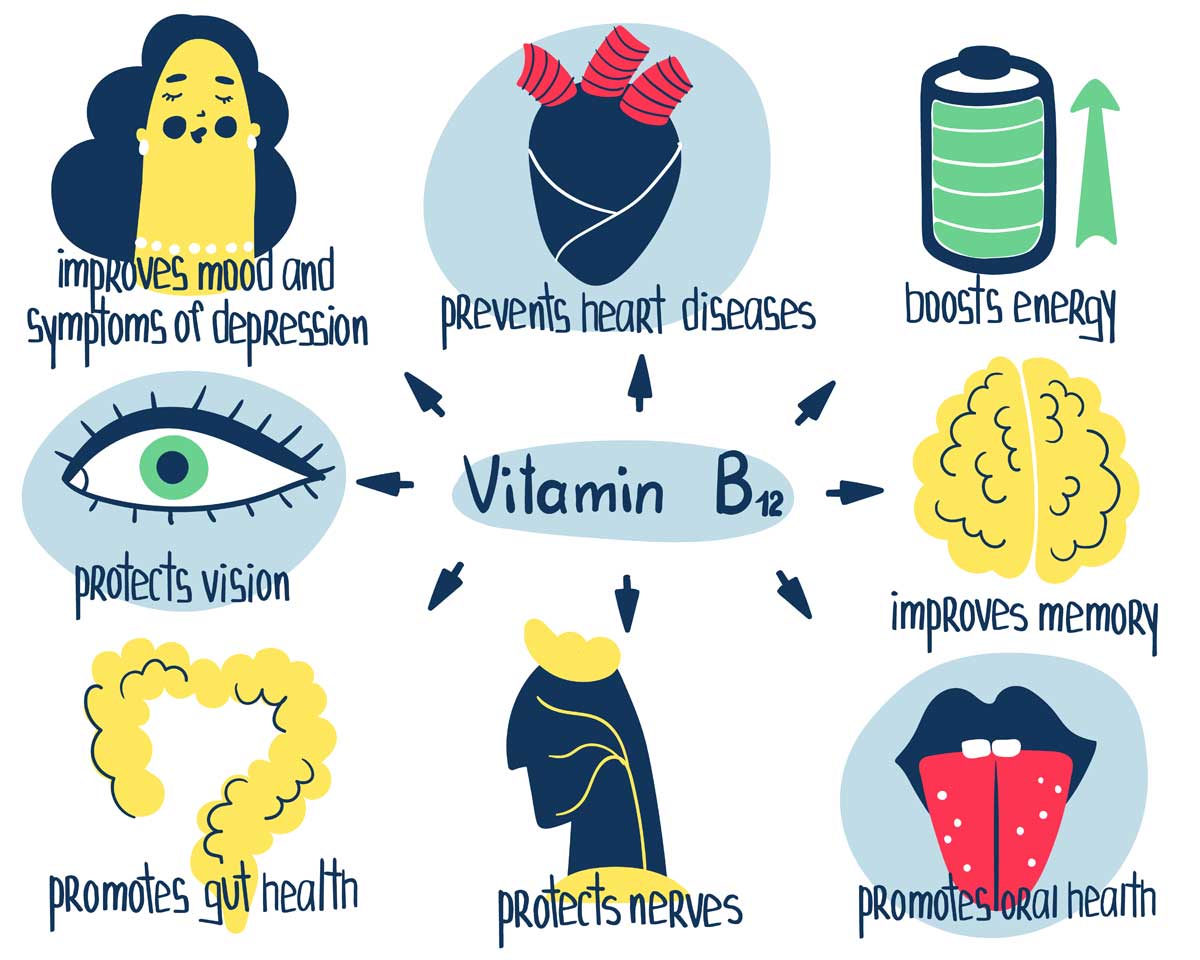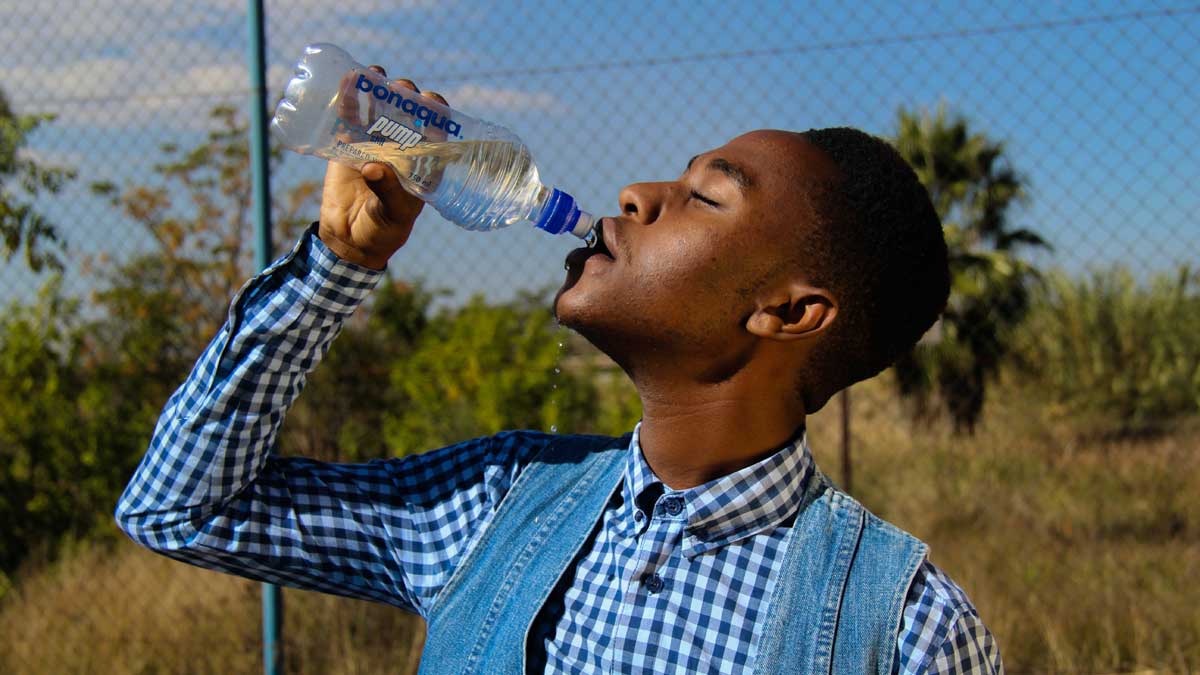Did you know that vitamin B12 is essential for our bodies to function normally? Dr. Maria Scunziano-Singh, a naturopathic medical doctor in Spring Hill, FL, discusses the importance of this vitamin to our well-being and health.
Vitamin B12 is responsible for many important functions in our bodies, including energy production, DNA synthesis, and red blood cell formation. It also helps keep our nervous system healthy and can play a role in preventing heart disease.
If you’re not getting enough vitamin B12 in your diet, you may start to experience some symptoms such as fatigue, weakness, constipation, or loss of appetite. In severe cases, a lack of vitamin B12 can lead to anemia or neurological problems.
What Is Vitamin B12?
Vitamin B12 is a class or group of chemically related compounds. The most common form is cyanocobalamin, a synthetic form used in pharmaceuticals and supplements that is stable and lower cost than others in the class. A more physiological form of B12, methylcobalamin, is also available with a higher cost but it is purported to be more bioavailable (able to be used by the body efficiently).
Vitamin B12 is an essential vitamin that a person needs to function normally. Our bodies cannot naturally synthesize it so it must be ingested from food or supplemented in the following forms: taken under the tongue (sublingual), intranasal (as a gel via nostril), or intramuscular (as an injection).
Because it is water soluble, it dissolves in water easily. It enters through the digestive tract or directly into the bloodstream in the body. The B12 is used by cells, and any unused B12 is eliminated through the kidneys when you urinate.
Vitamin B12 is found naturally in animal products, including fish, poultry, eggs, meat, animal milk (cow, goat), and their products, yeast, and certain algae.
All vitamin B12 is naturally synthesized by bacteria — and ONLY by bacteria. These organisms are mainly found in fish and livestock and to a lesser degree in plants.
Commercially produced B12 is from fermented bacteria. The most commonly used bacteria species currently are Propionibacterium shermanii and Pseudomonas denitrificans.
What Does Vitamin B12 Do For You?
Vitamin B12 plays an essential role in red blood cell production, energy production, cell metabolism, fat production and metabolism, and hormone production. It is also responsible for the manufacture and metabolism of protein, DNA (gene) synthesis, and helping our bodies maintain nerve function.

How Do You Get Vitamin B12?
Our primary sources for vitamin B12 are animal products, including fish, poultry, eggs, meat, milk, and milk products. Beef liver contains the highest content of vitamin B12, while eggs, milk, and chicken have much less per ounce.
Plants are generally not adequate sources of B12; however, nutritional yeast, fortified cereals, and fortified soy products and energy bars can be sources of vitamin B12. However, be aware that nutritional yeast alone is not known to contain sufficient B12 or even well-absorbable B12. Therefore, it should be fortified for the best nutritional value.
Vitamin B12 Facts of Interest?
Here are some interesting facts about Vitamin B12:
- Cobalt, a trace soil mineral, is needed by grazing animals to form B12. It is the cobalt that is the key element in allowing for B12 vitamin production. Cobalt itself is not used by the body but the substance it yields is the B12.
- Cyanide is a by-product of B12 metabolism but it is minimal and does no harm to our systems as of current scientific knowledge.
- Intrinsic factor, a natural chemical formed in the human stomach must be present for proper digestive absorption of B12. Aging, certain drugs (especially antibiotics), diseases and surgery can all disrupt or interfere with B12 absorption.
- About 50% of an oral dose of 1000mcg of vitamin B12 can be absorbed, but this absorption decreases if the threshold of intrinsic factor is exceeded (>2000mcg).
- Pernicious anemia is a very serious condition in which stomach cells with intrinsic factor are attacked by the immune system.
- Vitamin B12 is given intravenously to treat cyanide poisoning.
- Vegans are very strongly advised to add B12 supplementation to their diets.
Who Is At Risk For a Vitamin B12 Deficiency?
A specific subset of our population may be at risk for a vitamin B12 deficiency, including vegans, strict vegetarians, individuals with Celiac, Crohn’s Disease, and malabsorption or gastrointestinal tumors. Also, those at risk include people who have had bariatric surgery for weight reduction and a fetus or infant whose mother is B12 deficient.
Vitamin B12 is mainly stored in the liver, but a reduction in storage will occur with low or no intake. We store anywhere from 2 to 5 milligrams in the body, with 50% in the liver.
Those who are pregnant or trying to become pregnant, who follow a vegan lifestyle or fall into one of these at-risk groups, must get vitamin supplementation or fortification during this time. Please discuss this with your medical care provider.
Vitamin B12 Deficiency Manifestations
Once the body’s stores of vitamin B12 are diminished due to lack of intake or absorption, or both, serious health issues will arise. It is only when one replenishes the B12 that catastrophic events can be prevented.
You can be examined for possible B12 deficiency by visiting a healthcare provider. You may not realize that you have problems associated with vitamin B12 deficiencies.
When your levels of B12 become low you can start to experience symptoms such as:
- Fatigue (being very tired constantly)
- Weakness
- Constipation
- Weight loss
- Loss of appetite
- Numbness or tingling in your hands and feet
- Loss of balance
- Confusion
- Depression
- Poor memory
- Soreness of the mouth or tongue
- Blurred vision
- Hallucinations
- Personality changes
Of course, many of these problems may not be due to a B12 deficiency. Since there is no entirely consistent and reliable set of symptoms, you must have a medical doctor check for a vitamin B12 deficiency or any other issues that may cause these symptoms. If you have the symptoms mentioned above, please do not ignore the warnings!
Many people with low vitamin B12 may not have deficiency symptoms for 20 years or more. However, this fact remains elusive, and some explanation may be that analogs or substitute vitamins or enzymes may serve the purpose of bodily balance when B12 has not been sufficiently replenished.
Folate is an important substance found in most green plant foods. It may be one of the substances that will allow for longer periods without B12, which could account for this. However, it should not be considered an answer to B12 problems.
Measuring Vitamin B12?
A blood sample is the best way to know where your B12 levels stand. Levels above 500 are adequate for most people. Some other things to measure:
- Methylmalonic acid (an enzyme that will be elevated in deficiency), by blood sample; will be reduced in urine sample
- Complete blood count, by blood sample
- Homocysteine level, a blood enzyme to sample that can be an indirect source of detecting B12 deficiency (see high levels)
- Folate or folic acid levels in blood sampling are other indirect means of checking for B12 deficiencies (see low levels)
US Recommended Daily Allowance For Vitamin B12
The U.S. recommended daily allowance for vitamin B12 for adults is 2.4 mcg, with nursing moms needing up to 2.8 mcg.
Taking in 1 mcg of B12 in food form three times a day is good practice for most adult individuals.
If you use a supplement, 500-1000mcg a day or every other day can be safely taken because you will usually absorb only half the intake; less absorption will occur with persons eating little-to-no animal products and over the age of 50 in general.

Vitamin B12 Foods & Supplements
According to the Foods Standards Agency and The Vegetarian Society of the U.K., we need to be aware of vitamin B12 sources and consume B12 daily in adequate amounts to prevent severe health conditions.
To get vitamin B12 from foods you should be eating things such as:
- Meat
- Milk
- Eggs
- Fish
When consuming meat and dairy products, ingesting animal products that are not from grass-fed or humanely-raised livestock means you may be taking in antibiotics and other chemicals that will affect B12!
You can get smaller amounts of B12 from thing such as:
- Tempeh (fermented tofu)
- Chlorella
- Organic land veggies that have not been washed
- Seaweeds
It is important to take these above plant foods often if animal products are not an option for your diet. While the value of plants in our diet cannot be overstated, do not rely on a few plants alone for B12. It would be best if you had a wide variety of, preferably organic, plants, and you should also consider a supplement.
Fortified cereal, soy, or other vegetarian products usually also contain absorbable B12.
Supplements can be either over counter purchased or medically prescribed. If your physician in Hernando County, or wherever you are located, is unaware of your intake or that you are at risk for a deficiency, please discuss any symptoms you may have that would prompt investigation and possibly a prescription.
Drug Interference With Vitamin B12
There are more than 1,000 different medicines, over-the-counter or prescribed, that will interfere with B12 in the human body. The following commonly used medications can and will cause B12 levels to drop:
- Metformin – for diabetes
- Antacids and proton-pump inhibitors – daily use can deplete many essential vitamins and minerals
- Oral contraceptives and estrogen replacement
- Anti-seizure medicine
- Blood pressure lowering meds – like beta blockers
- Ibuprofen
- Aspirin
- Cholesterol lowering meds
- Benzodiazepines – like Valium, Xanax, Ativan, Temazepam
- Antibiotics
If you are one or more of these medications, you are strongly advised to supplement vitamin B12, because even so called “adequate daily consumption” may be largely inadequate with poor health outcomes.
Talk to your medical or other healthcare providers who may be able to guide you further.
If you feel a single provider is not helping you, seek more advice on how best to improve your overall health.
Take charge. It is your life – protect it well.
References and Recommended Reading
- Herbert. V.. Vitamin B12 in Present Knowledge in Nutrition; 17th Ed.; International Life scisences Institute Press; Washington, D.C., 1996.
- Pachiloh, S., R.N., Stuart, J. D.O.. Could It Be B12: An Epidemic of Misdiagnoses; Linden Publishing, 1st Ed., USA, 2005.
- Sumner, AE, et al. EElevated methylmalonic acid and total homocysteine levels…after gastric surgery; Ann. Internal Medicine; 1996; 124:469-76.
source https://wellcomeomcenter.com/the-importance-of-vitamin-b12-to-our-body/


